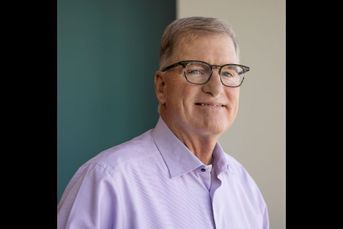For most near-retirees, leaving the workforce at 65 is a lost cause

New Nationwide poll reveals impact of inflation and concerns about Social Security on pre-retirees’ expectations.
The retirement landscape in the US is shifting dramatically as a significant portion of the population approaches the traditional retirement age of 65 – a goal many say is increasingly out of reach, according to a new survey by Nationwide.
The ninth annual Advisor Authority survey led by the Nationwide Retirement Institute indicates that 69 percent of pre-retiree investors, those 55 to 65 who have not yet retired, believe retiring at 65 is no longer feasible. Another two-thirds (67 percent) anticipate facing greater retirement challenges compared to previous generations.
The findings of the survey, which drew responses from around 500 advisors and roughly 2,400 investors, reflect a trend of financial insecurity and the fact that many workers must now work beyond the traditional retirement age of 65.
“Many of us watched our parents and grandparents enjoy a smooth transition to a secure retirement powered by traditional pension benefits,” Eric Henderson, president of Nationwide Annuity, said in a statement.
“Today’s investors are having a tougher time picturing that for themselves as they grapple with inflation and concerns about running out of money in retirement,” Henderson said.
Adjustments in financial habits are plain to see among pre-retirees, with 42 percent finding it harder to manage daily expenses as a result of rising living costs. Inflation has also forced nearly 30 percent to cut back on their retirement savings. More than half the respondents view inflation as the most pressing challenge to their retirement portfolios in the coming year.
The poll also revealed a notable shift in confidence regarding traditional retirement security measures like Social Security. Two-fifths of participants (38 percent) doubt they can count on Social Security when they retire, which is pushing many to adjust their retirement strategies. In line with that, a significant 43 percent say they’re depending less on Social Security benefits than before, and 27 percent said they’re expecting to get less in benefits than they previously thought.
Financial advisors are playing a crucial role in navigating these uncertain waters, the survey said, as they increasingly focus on helping clients with accumulating enough retirement savings (49 percent), tax planning (38 percent), and converting savings into retirement income (33 percent).
“The final years leading up to retirement are a critical time for making decisions that can carry life-long implications,” Henderson added. “Good advisors can identify gaps and create plans to address them before it’s too late.”
Nationwide’s polling also revealed that annuities and diversified assets to protect against market risks have gained traction. According to the survey, 61 percent of advisors now recommend such strategies, an increase from 55 percent just five months prior.
Retirement savings gap persists despite bull market, Ascensus CEO says
Learn more about reprints and licensing for this article.








